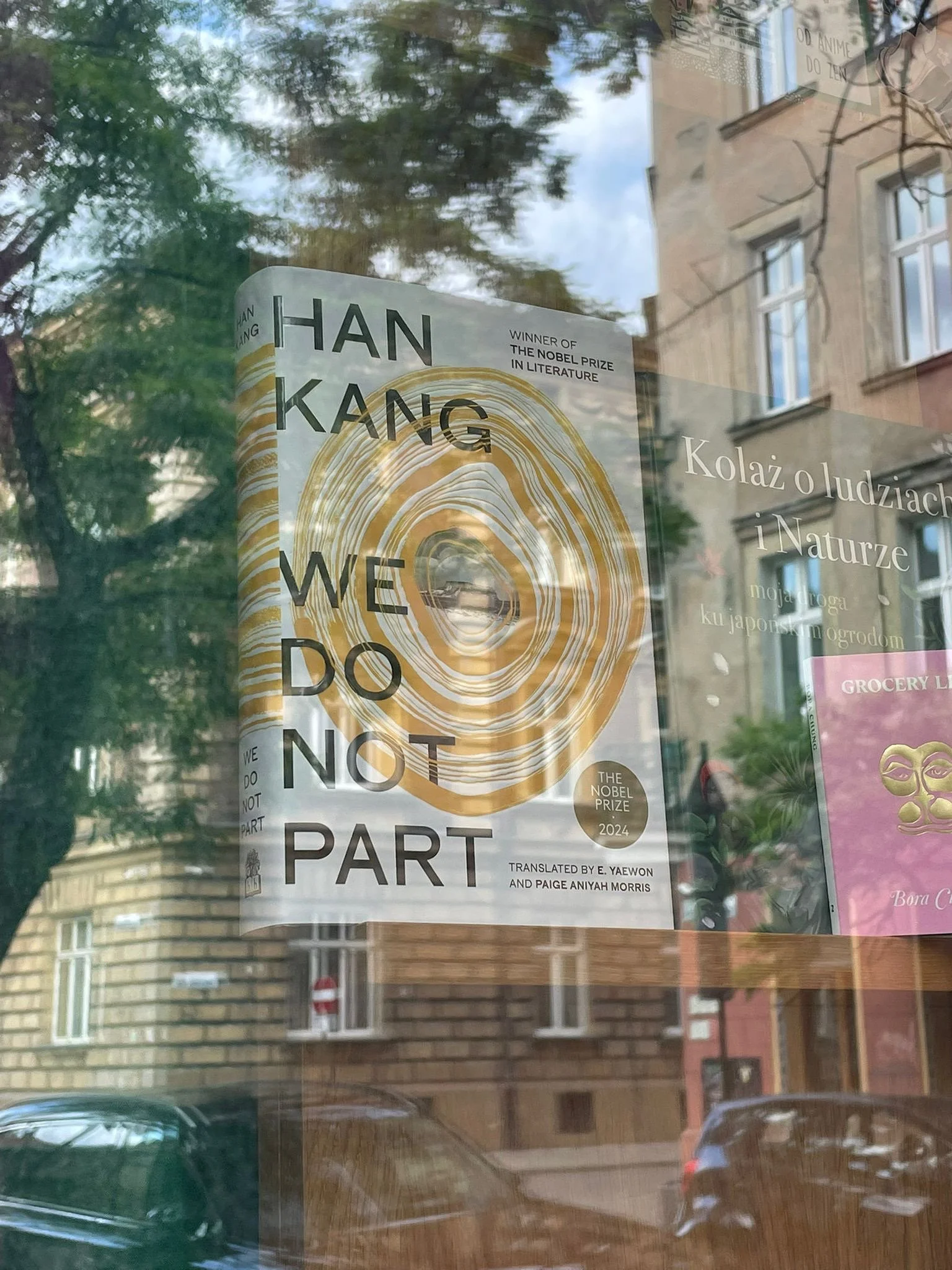We Do Not Part
by Han Kang
A story about friendship, memory, and the silences left by a history too painful to name.
Looking for a spoiler-free review of We Do Not Part?
Here’s what it’s about, how it captures stillness and strength, and why it stands as one of Han Kang’s most quietly powerful reckonings with Korean history and memory
What It’s About
This book had three distinct sections for me.
First, there’s the beginning, the getting-to-know phase. Two women, a friendship, conversations, a sudden accident. A dream. Foreshadowing, maybe? There’s something tentative in how it all starts, but also something purposeful. Han Kang never writes without intention.
Then comes the snow. So much snow.
Pages and pages of it. The kind of snow that slows everything down, not just for the characters but for the reader too. I don’t say that as a complaint but more as an observation. Pushing through those scenes almost mirrored what it might’ve felt like to physically move through that snow. You’re meant to feel it. Meant to pause.
And then there’s the third section, where the real unease sets in.
Surreal. A little disorienting. Was there a ghost? Who was it? What did it mean? I kept wondering if it was meant to be a stand-in for something unspoken, the things no one was allowed to say about Jeju. The history that couldn’t be named. The trauma buried so deep it came back as something spectral.
And then there’s that larger truth: so much of it was hidden. Covered up.
Because of the cruelty of it all.
Because the violence was sanctioned directly or indirectly by the U.S.
Because sometimes the most horrific parts of history don’t make it into the official narrative.
Han Kang doesn’t explain it for you. She doesn’t give you everything. But she gives enough. She lets the silence speak.
My Take
I’ve said this before, but I love Han Kang. She doesn’t add filler. Nothing is random. Everything means something even if it doesn’t become clear right away. And with this book especially, I have a feeling the more I read about Korean history, the more I’ll circle back to this story and say, “Ah. That’s what she was showing me.”
There’s one thought that really stuck with me, even if I’m not sure why yet.
The events leading up to and including the Jeju Massacre started in 1947 and ran through 1949. Aesun, from When Life Gives You Tangerines, was born in 1951.
That overlap won’t leave me alone.
Maybe because Tangerines gave such a vivid sense of how Jeju people lived, their food, their rhythms, their quiet strength. And this book? This one whispered what they endured.
Would I Recommend It?
Yes, if you're ready for something quiet, layered, and emotionally weighty. Don’t go in expecting a clear narrative arc. Let it unfold. Let yourself sit in the snow and wait for the ghost of the past.
Where to Find It
Buy on Amazon
Buy on Bookshop.org
First time on Bookshop.org? Click for discount code
Also available via WorldCat if you want to check your local library
Looking for your next read?
My Asian Era is where literature meets culture, thoughtful reviews, quiet voices, and stories worth slowing down for.

